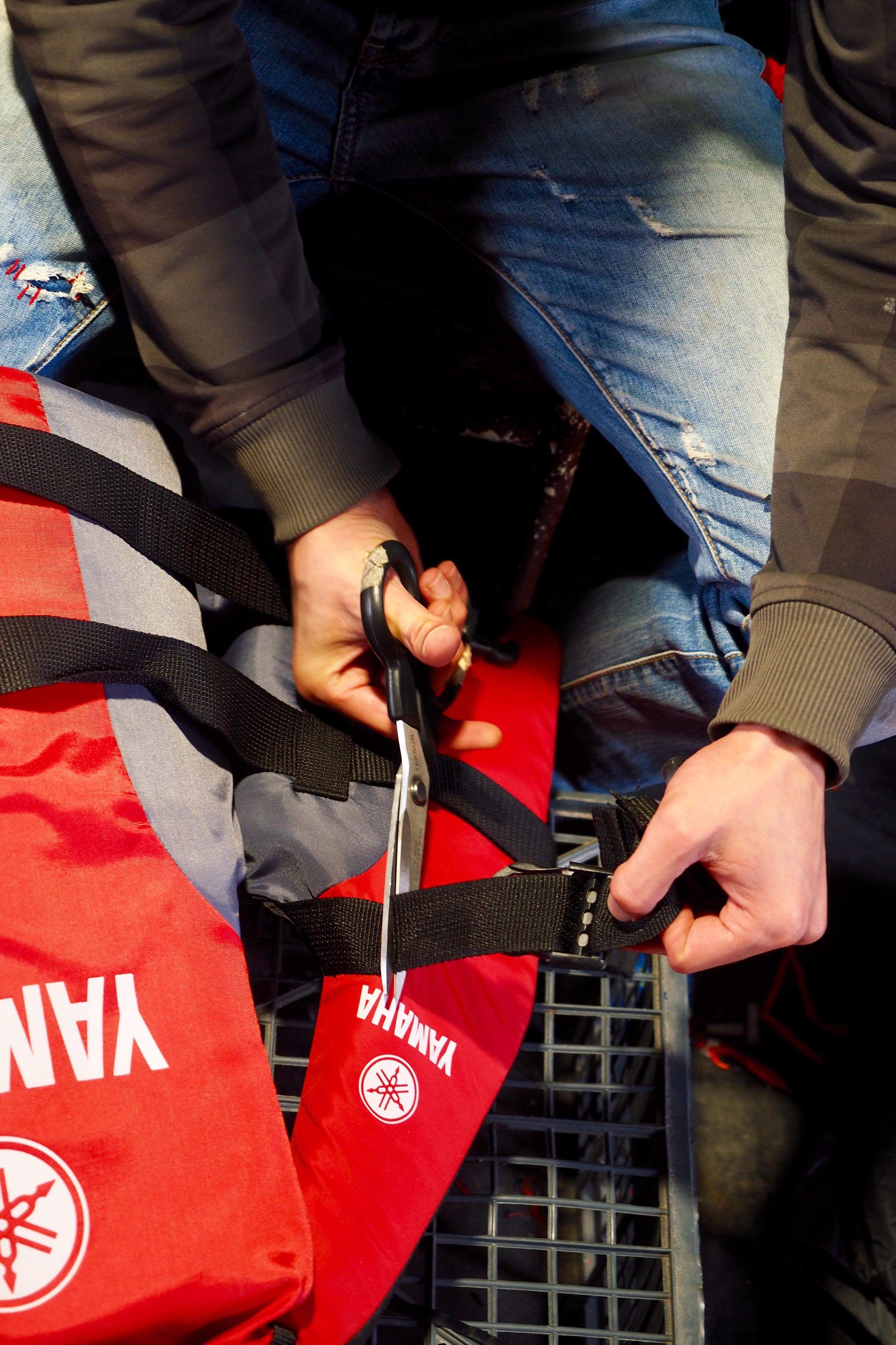The first day that I began this job there was a man from Pakistan here. He was a good person. He had great English and taught me many words. Before I came to Pikpa I stayed in Moria camp. I did not speak to other people there as it was too dangerous. Now I am changed. I had one word of English when I arrived. Now I have spoken to many volunteers, and studied myself, and can speak English. I was able to do this because I feel comfortable here.
I work with the life jackets that people wore on the refugee boats. I cut the clips and remove the belts, then I take out the foam. Bigger pieces can be used again, smaller pieces can be discarded. After that I connect the long and small belts together with clips. When I am finished, I send the materials to the Mosaik Support Centre, where they use them for the ‘Safe Passage’ bags they create. Today I want to finish this whole pile.
I enjoy this work. However, when I see the small life jackets, I feel sad as I know who wore them. I came here by boat myself, along with my mother, my sister, her husband and their children. It took us six hours. I will never forget it – I thought my mother was going to die. I didn’t wear a life jacket as I can swim. I was not afraid of the sea, only for my mother. She came to Europe for us, not for herself. She could have stayed in Syria. For women it would not have been a problem, only for men.
I was always swimming in Latakia, our city. We lived very close to the sea. In the summer we had parties on the beach almost every day. I worked as an optician and a part time footballer and had friends from both jobs. I was busy and happy. Latakia was a peaceful place where people from many backgrounds lived together. We never asked about another person’s religion. This was not the way we were raised. In Moria the first question they asked me was “What is your religion?”.
When I left Syria, I wanted to carry on playing football. I hoped to find a club in Europe. Now I am too old. I thought I would stay for a month or two and then carry on with my life. I didn’t know I would sit in a camp all of this time. We have been on Lesvos for three years now. We continue to wait.
I don’t know what will happen with my mother. If she gets asylum, she could go to Germany and live with my sister, who went there with her family. I could go to my girlfriend in Spain. If I get a good job in Greece I could stay here. I will see. I don’t want to apply for asylum somewhere else because I would lose more years of my life. If I go to another country I will try and obtain a work permit to get there. I will die or continue; I cannot go back now.
Always I continue to hope. If you cannot accept your life, then how could you go on? You need to stay strong. There is no other choice.
Interviews by Tom Adams and Aud Steinsbekk / Editing by Tom Adams
Photo by Knut Tinagent
